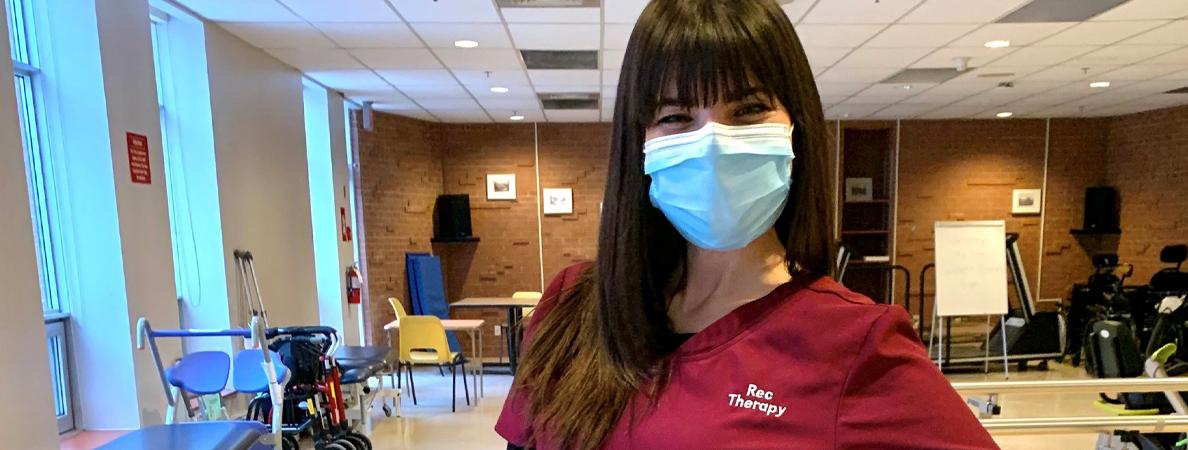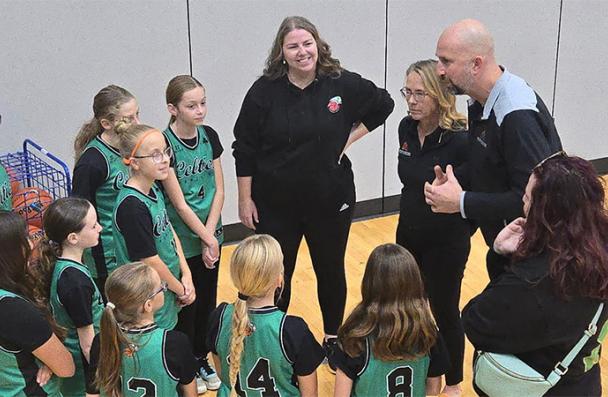
While in her final semester and preparing to graduate from the Recreation Therapy program, Julie Thompson could not have predicted the “new world” she would be entering as a graduate in the spring of 2020.
During her two-year program, she completed much of her training before the pandemic swept across the world. In her final months as a Mohawk student, she was hired full-time at Willet Hospital in Paris, Ontario as a Recreation Therapist Assistant. There she was part of a team that created a memory care project that focuses on therapeutic recreation in a hospital setting for patients with dementia to decrease isolation.
Coming to Mohawk as a mature student, Julie was inspired to pursue a career in the field when she saw how therapeutic recreation helped a family member. After thoroughly reviewing the program, she knew it was the right fit for her. “Mohawk’s program was highly spoken of in the field, and when I talked to faculty, they confirmed I would have the support and experience [upon graduation] to enter my new career feeling prepared.”
As a student, Julie completed her practicum at Brantford Community Healthcare System. She has recently returned to the same hospital in a full-time role as a Recreation Therapist in Complex Care at their main hospital. Due to the pandemic, Julie has seen a lot of changes since her placement experience.
Many new rules and protocols have been put in place to keep everyone safe while ensuring patients continue to receive the support they need. “It’s definitely been a barrier. For example, patients can no longer share supplies or equipment,” Julie explains. “But what makes my colleagues and I great recreation therapists is our ability to be creative and adapt to the needs of our patients, providing different evidence-based therapies to fit the strengths and interests of the individual.”
Her day-to-day work can vary, but typically Julie is assessing patients, organizing group activities or providing one-on-one therapies for those unable to participate in a group setting. “Recreation therapy is making their days better,” she says. Especially throughout the last year with restrictions on hospital visitors, Julie and her fellow recreation therapists help break up the increased isolation for patients. “At the end of the day, if I can help someone’s mood lift because of the therapy I’m doing with them, that is the best part of my job,” she shares.
Julie can’t say enough good things about the education she received from Mohawk, “the experiential learning and the supportive staff was everything for helping me to narrow down where I wanted my career path to go.” When first entering the program, Julie had thought she wanted to work in mental health, but when she got the opportunity to work with patients who have dementia, she found her passion. “Before that experience, I never would have thought I would enjoy this work,” shares Julie, “but, by doing it, it is now my career focus.”
Julie is confident that she would not be where she is today without her Mohawk experience and encourages anyone else considering the field to go for it. As Julie explains, “It is a growing field that is needed in all areas of healthcare, more than ever.”







